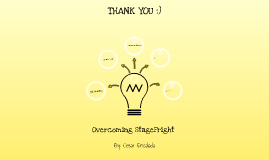Notes Presentation
Transcript: How to argue well. . . APA Format Journal: All authors; last name, first initial. (Year). Article Title. Journal Title, Volume, Pages. URL or DOI. Example: Irving, L. M. (2000). Eating disorders prevention through research, community involvement, and media activism. Heavy Weight Journal, 14, 86. Retrieved from: http://content.ebscohost.com Book: Author; last name, first initial. (Year). Book Title. City of Publication. Publisher. Example: McKenzie, F.R. (2008). Theory and practice with adolescents: An applied approach. Chicago, IL: Lyceum Books. MLA Format Journal: Author; last name first. Title of article. Journal Title. Volume, Issue. (Year): Pages. Database name. Medium. Date of Access. Example: Heyen, William. "Sunlight." American Poetry Review 36.2 (2007): 55-56. Expanded Academic ASAP. Web. 24 Mar. 2010. Book: Author; last name first. Book Title. City of Publication. Publisher. Date. Medium. Example: Sacks, Oliver. Musicophilia: Tales of Music and the Brain. New York: Knopf, 2007. Print. Do not PLAGIARIZE : Exception: Using ideas from "The Declaration of Independence" is not plagiarism because it is freely circulated and part of the public domain Final Notes and Ideas Steps 1. Know where to get information 2. Send to the right person 3. Include name, address, and phone number 4. Be timely 5. Address properly 6. Name Bill 7. Share expert knowledge 8. Give reason (evidence) 9. Be constructive 10. Be brief 11. Be focused 12. Do not be a perfectionist Steps 1. Know publication 2. Content: make 1 point 3. Method: be timely 4. Style: brief, courteous, edited 5. Professional format Truth in: Find truth through our research See many sides, can decide what is right Transformation of: Writing Skills Perspectives Understanding Character Group Skills End of our journey . . . Just the beginning: What to do: Almost there . . . Our Goals = Definition: Do cite your SOURCES correctly! Explicit: Writer directly states it Implicit: Writer does not directly state it, implies it FEEDBACK: Truth Know how to write a good research paper Think for ourselves NNU Values Lanham Paramedic Method: 1. Circle passive verbs (is, where, are, to, be) 2. Ask, who is doing what? 3. Put action into direct active verb DO: give constructive, specific feedback Understanding of paper topic Rogerian Argument What not to do: How to use emotional appeal responsibly Use a quote from someone without giving proper citation How we survived! How to write an effective letter to a legislator DO NOT: do the corrections for them Unfair use: Demonize opposing view Disrespectful or smart aleck Excessive Offensive False A+ Transformation Fair use: Use to draw attention to an issue Relevant Accurate Unfair use: Too dramatic Does not relate to topic Over use Discriminatory or false Distracting from issue Sentence needs to: 1. Take a stand (Tell where paragraph is going) 2. Be specific enough Cite all sources from which you borrowed ideas Fair use: Use to grab attention Address the situation Evoke a personal memory Prepare audience by suggesting to them how to feel How to use satire or humor well How to write an effective letter to a newspaper editor Do cut excess WORDS! Using ideas, opinions, and words from another person without giving them credit How doe English 2020 serve these goals? Ask a librarian if you have questions! Information Overload! Example: Before: Brooklyn and Bailey are fighting, because they do not agree how to put the dishes in the dishwasher. After: Brooklyn and Bailey fight over the dishes. First Notes Do have a strong, arguable topic sentence To Do: & Not to Do: Final Steps Other tips: 1. Cut passive voice 2. Be specific 3. Eliminate "stuffing" words The many notes taken, late nights working on homework, and assignments turned in . . . was all worth it! Through English 2020 Our Journey. . . Hard D! Doable A? D = Over scheduling yourself Do not revise A = Plan your time TALK to someone if you are have questions or are having trouble Time Management Time Savers: 1. Stick to your schedule 2. Make to do lists Time Wasters: 1. Procrastinating 2. Phone distractions Identifying Assumptions Assumption: unexamined belief or claim without evidence Top Sources 1. Wall Street Journal 2. New York Times For Nursing: 1. CINAHL 2. Medline Top Databases For Psychology: 1. Psych INFO 2. PsychARTICLES Critically Thinking A religious believer might want to be a critical thinker because they can explore the truth behind their religion and understand why they believe what they do. A religious believer may not want to be a critical thinker because they will question their beliefs which could result in rejecting their faith Logos: using logic or reason Ethos: appeal to character of audience or speaker/writer Pathos: emotional appeal Appeals Arguments using: 1. Examples: real events or invented situations 3. Statistics: quantitative evidence 4. Authoritative Testimony: citation or quotation of authorities 2. Analogy: kind of comparison, showing how they are

















